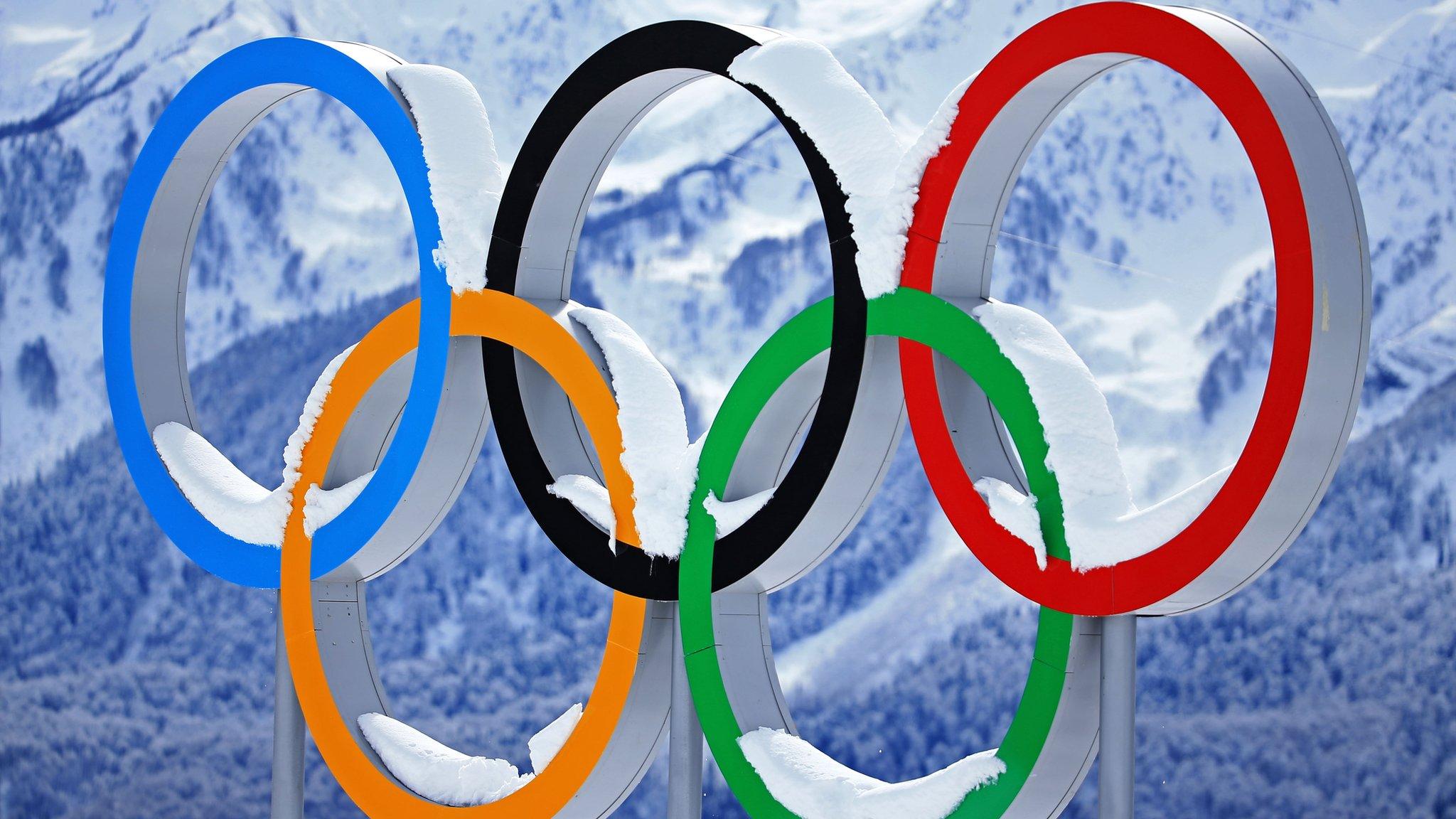Sochi loses right to host bobsleigh & skeleton World Championships
- Published
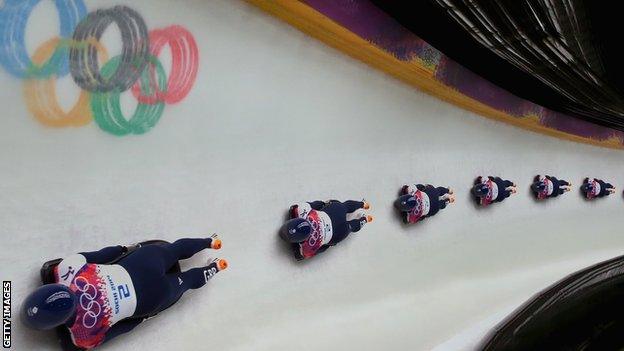
The 2014 Winter Olympics were held in Sochi
The Russian city of Sochi will not host the 2017 bobsleigh and skeleton World Championships.
The International Bobsleigh and Skeleton Federation (IBSF) said it would not be "prudent" to hold the championships in Russia, a country accused of state-sponsored doping.
A report on 9 December claimed more than 1,000 Russians benefited from a doping cover-up between 2011 and 2015.
A new host city will be named for the February event in the forthcoming days.
According to Russia's RIA news agency, Kremlin spokesman Dmitry Peskov said the decision to strip Sochi of the championships was "politicised and without grounds".
The executive committee of the IBSF said it had made the decision because it wanted to focus on sport rather than accusations.
It is understood a number of German venues have offered to host the event, along with the Swiss town of St Moritz.
Decision follows boycott threats
On Monday, Latvia became the first nation to say they would boycott the World Championships, citing that "the Olympic spirit was stolen in 2014".
High-profile American bobsledder Lolo Jones had also urged the IBSF to move its flagship event, saying she wanted to compete in a competition that was "drug free and safe", adding Sochi was "not an option".
In November, British Olympic skeleton champion Lizzy Yarnold had said she may boycott the championships because of concerns over doping.
Following Tuesday's decision, Yarnold tweeted:, external "So glad our voices are being heard and our sport is joining the fight against doping in sport #CleanSport."
Lizzy Yarnold may boycott Sochi World Championships
In July, an investigation commissioned by the World Anti-Doping Agency (Wada) said Russia's sports ministry "directed, controlled and oversaw" manipulation of urine samples provided by its athletes.
A second Wada report from Canadian law professor and sports lawyer Dr Richard McLaren said the London 2012 Olympics was "corrupted on an unprecedented scale".
According to McLaren's report, salt and coffee were used to manipulate Russian samples and the system was refined over the course of the London 2012 Olympics, 2013 Worlds in Moscow and the 2014 Winter Olympics in Sochi to protect likely Russian medal winners.
Russia won 72 medals at the London Games, 21 of which were gold, and 33 medals at Sochi, 13 of which were gold.
Athletes had safety concerns
One senior figure inside the sport told the BBC that teams had worried about the safety of officials and athletes, and about the impact of competing in a country that was not compliant with Wada regulations.
"On a practical level, many teams were worried about the evidence that Russian laboratories had been opening tamper-proof bottles," said the figure, who did not want to be named.
"If they have opened these bottles to help their athletes, what is to stop them also opening them to tamper with samples from any athlete in the competition?"
The BBC has been told that a number of members of the British team had already said they were unwilling to take part in the Sochi Games, while team sponsors were also reluctant to have their name associated with the event.
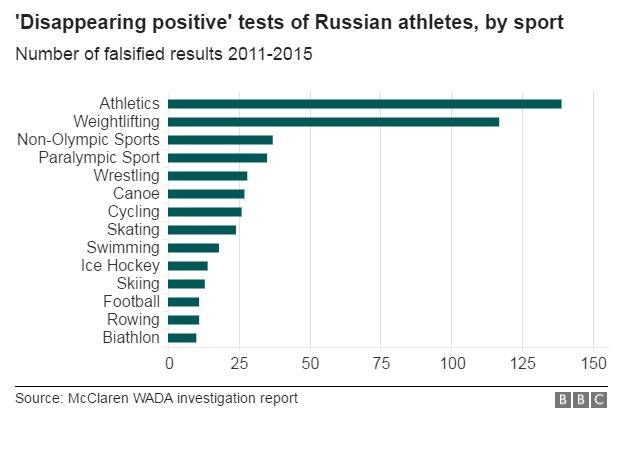
The sports that benefited from Russia's state sponsored 'Disappearing Positive Methodology"
What the IBSF said - the full statement
The IBSF executive committee felt that during this difficult time it is prudent not to organise such an event in Russia. This decision was made for two primary reasons:
To allow athletes and coaches from all nations to participate in a competition that focuses on sport rather than accusations and discussions - whether justified or not.
The Russian Bobsleigh Federation has put a great effort in the preparation of the World Championships, but the current climate would make it nearly impossible to appreciate the efforts of the organising committee to host a great event or the quality of the Sanki Sliding Center as one of the best tracks in the world.
"Having stated that, the IBSF asks all members and athletes for fair play and respect, which also includes the assumption of innocence for any athlete, regardless of national affiliation, until proven guilty."
What Russia have said
Vitaly Smirnov, head of Russia's anti-doping commission, told the R-Sport news agency that other sports could now choose to move competitions away from the country.
"It's probably a consequence of the McLaren report. In principle there could be decisions on a whole range of sports," Smirnov reportedly said.
Russia is scheduled to host the Fifa World Cup in 2018.
In response to McLaren's second report, Russia's sports ministry had said it would examine the findings but insisted on "the absence of a state programme of support for doping sport".
The British Bobsleigh and Skeleton Association welcomes the decision
"We believe the decision is in the best interests of clean sport and we are pleased that the IBSF have acted quickly following the publication of the second McLaren report on Friday," its statement read.
Britain's bobsleigh performance director Gary Anderson told BBC Sport it was a "great relief" for winter sport athletes around the world, adding: "The IBSF were under huge pressure, but we're pleased they acted swiftly."
Where could it go?
Latvia's four-time skeleton world champion Martins Dukurs, who was beaten by Russian athlete Aleksandr Tretyakov at the 2014 Sochi Winter Games, believes Calgary in Canada and Park City, Utah are prepared to take the championships.
"There is an interesting idea where we have the last World Cup [round] in Korea, all the television and all the people are there. Why not have the last World Cup event and then the World Championships all in the same place?" said the 32-year-old, whose nation was set to boycott the World Championships in Sochi.
South Korea's bobsleigh and skeleton federation had been considering boycotting the event too, while Germany's federation, which had called for a switch of venue, says it would be in a position to host the event.
Dan Roan reports from the discredited Moscow anti-doping laboratory
- Published11 December 2016
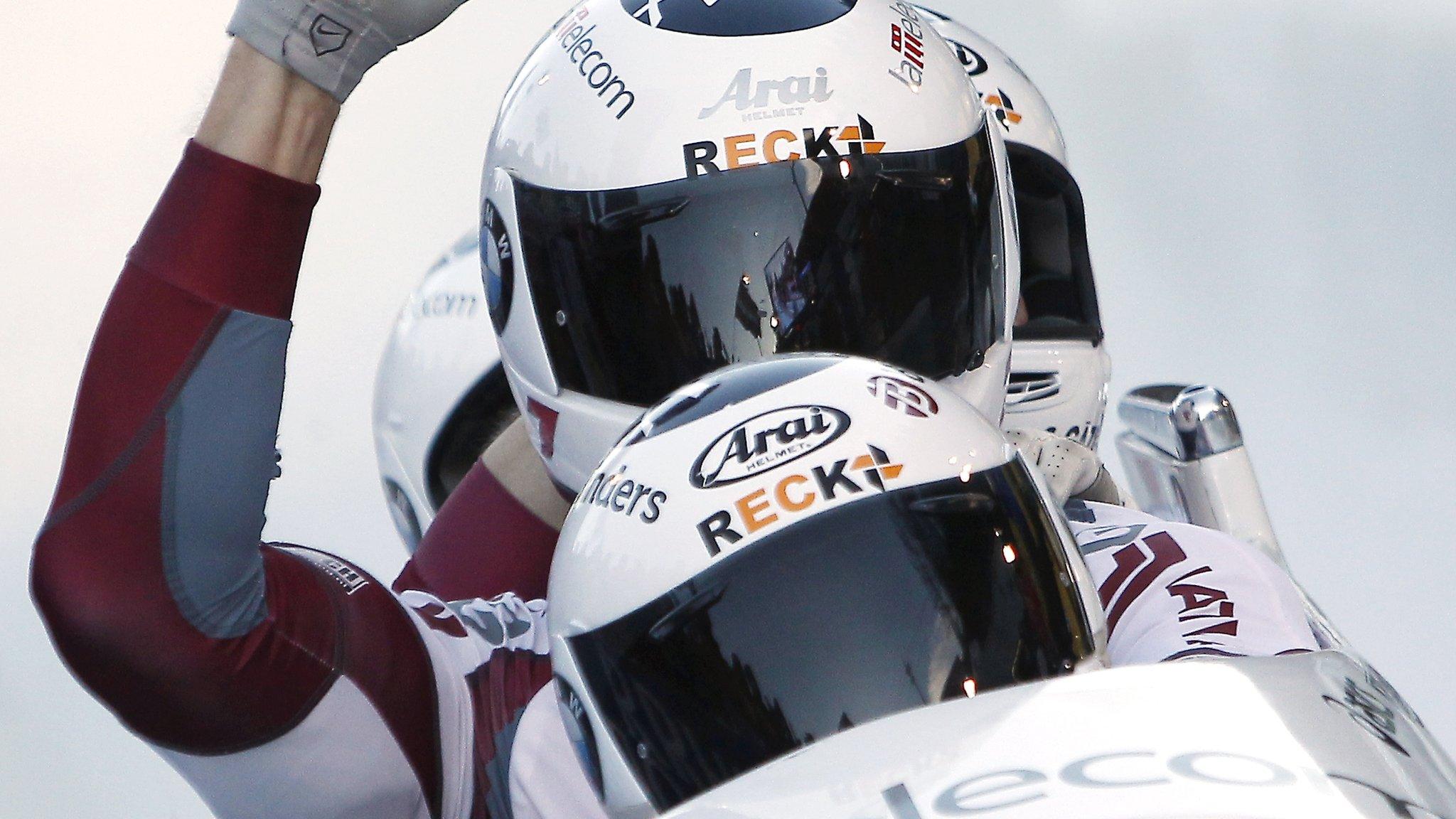
- Published1 November 2016
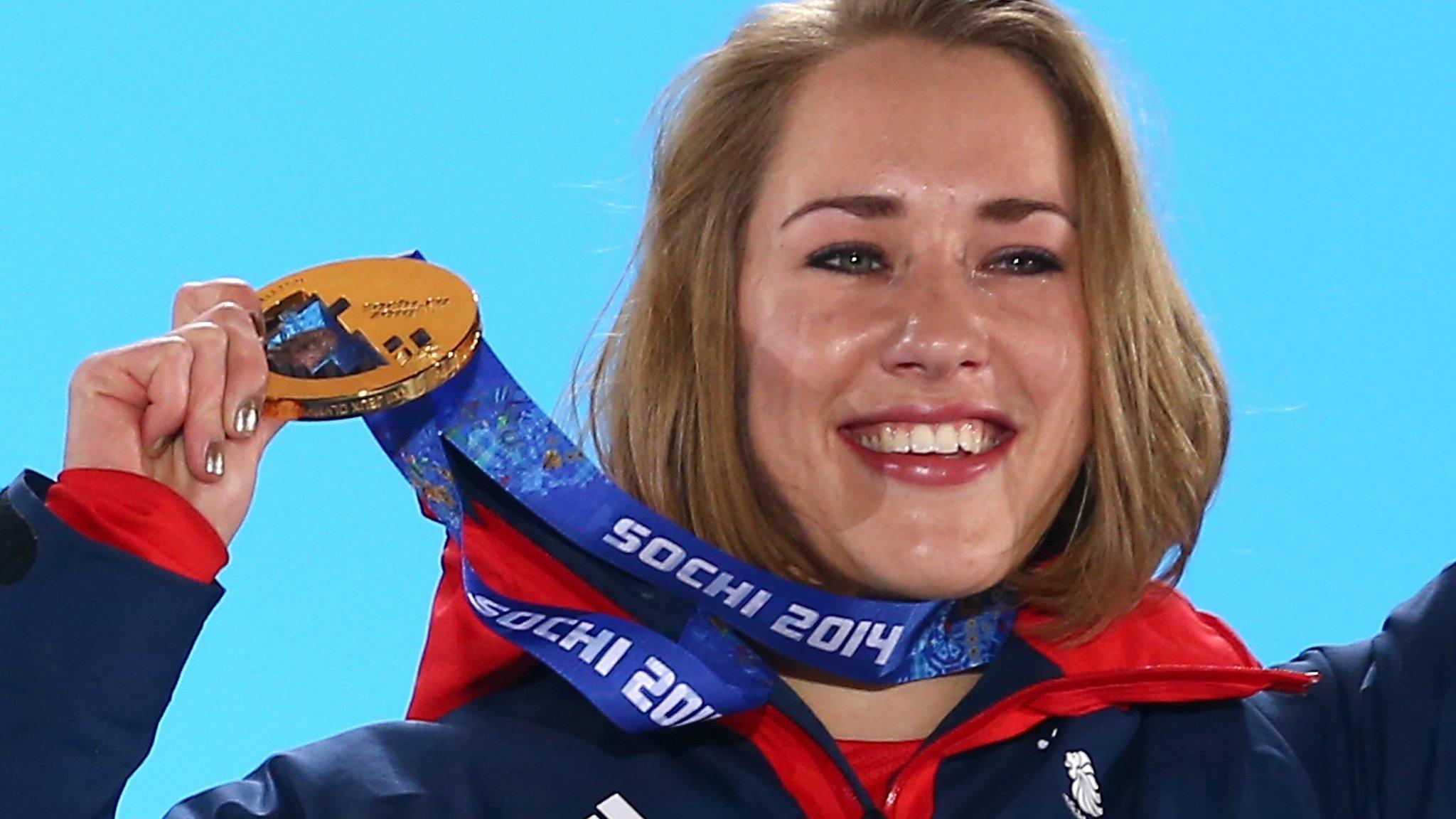
- Published8 December 2016
